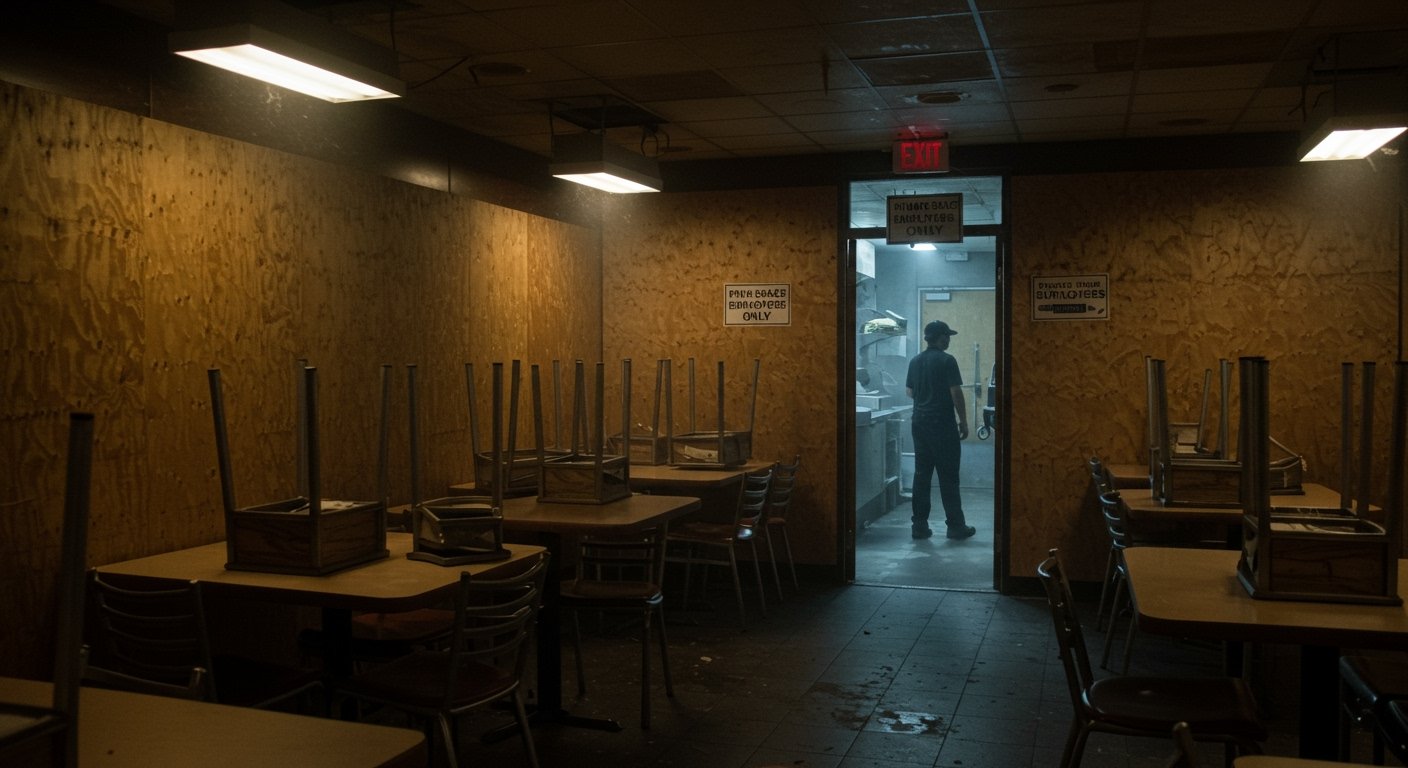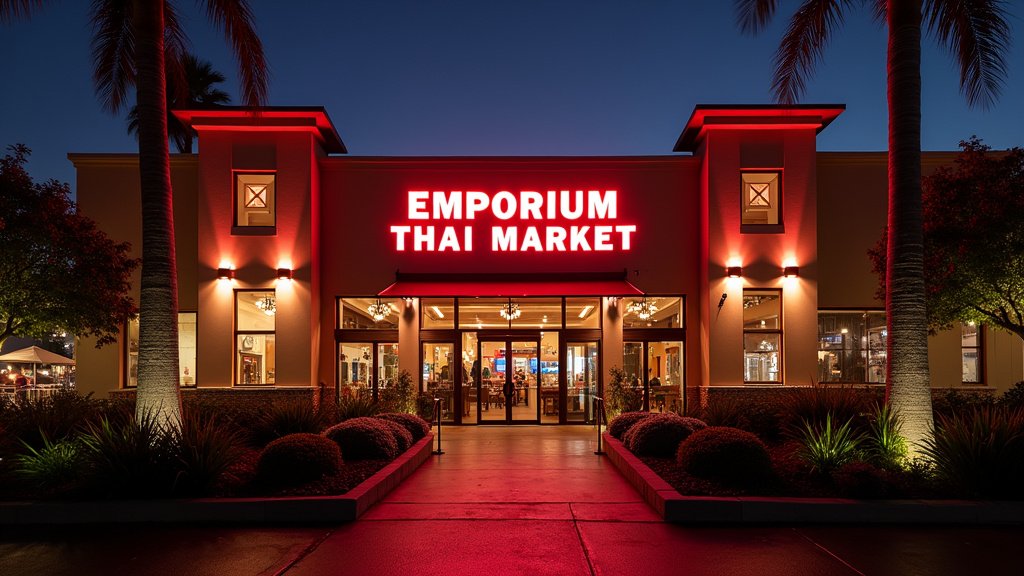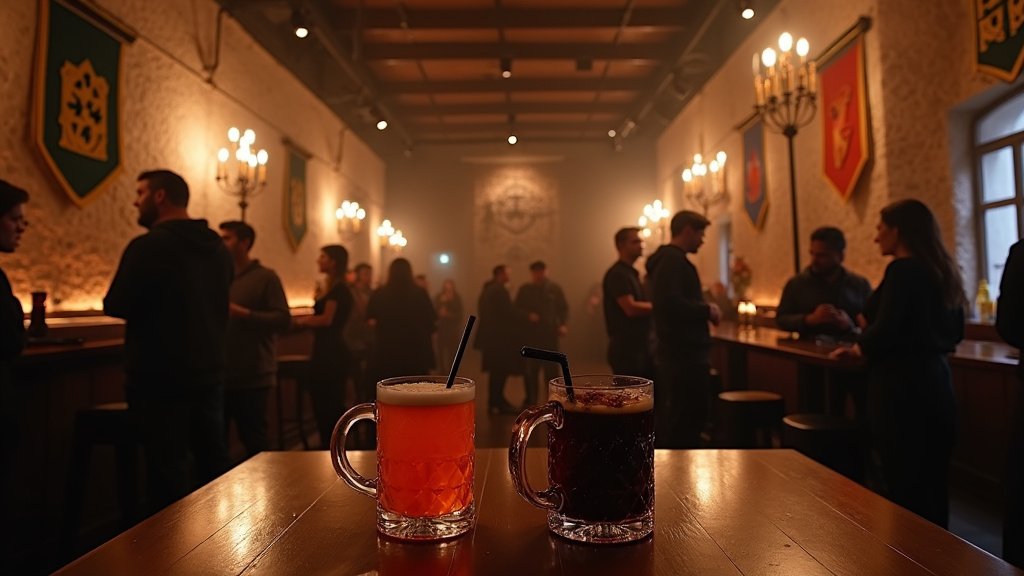Los Angeles, CA — The vibrant culinary landscape of Los Angeles, a significant economic and cultural engine for the region, finds itself navigating an unprecedented crisis. Recent intensified immigration enforcement actions by U.S. Immigration and Customs Enforcement (ICE), coupled with city-wide curfews and widespread protests, have dealt a severe blow to the industry, particularly impacting businesses in downtown L.A. At the heart of this challenge lies the pervasive reliance on undocumented workers, a demographic now facing heightened fear and uncertainty.
Immediate Impact on Operations
The consequences of this climate of fear were immediate and visible across the city. Following sweeping arrests by ICE, widespread protests erupted, leading to security measures that included curfews in areas like downtown Los Angeles. This forced many businesses, including restaurants and storefronts, to board up, halting operations entirely. While the downtown curfew was lifted on Tuesday, June 17, the disruption had already taken its toll.
The atmosphere of apprehension among both workers and customers prompted many to stay home, leading to a significant financial downturn for businesses that had already been grappling with fluctuating economic conditions. The fear of raids or getting caught in protest activity created a tangible barrier to normal commerce.
Economic Fallout: A Case Study
The financial impact on individual establishments has been stark. Lasita, a restaurant co-owned by Steff Valencia and chef Nico de Leon, provides a poignant example. In the week following the imposition of the downtown curfew, the restaurant experienced a staggering 95% drop in reservations. Attempting to recover after closing for three days, Lasita reopened to offer a 1 to 6 p.m. lunch service but saw sales plummet by 73%. This dramatic decrease was attributed, in part, to fearful staff members calling out, highlighting the direct link between enforcement actions and operational capacity.
Industry Response and Uncertainty
Restaurant owners and managers across the Greater Los Angeles metropolitan area are finding themselves on the front lines of this crisis, tasked with providing security and support for a workforce that often includes a significant number of undocumented immigrants. The lack of clear protocols and legal guidance has added to the difficulty.
In response to the pervasive uncertainty, some industry professionals are taking proactive steps. Managers along Sunset Boulevard, a major thoroughfare dotted with numerous restaurants, have reportedly created a group chat. This informal network serves as a vital channel for sharing real-time information about observed ICE movements, allowing businesses to potentially prepare or advise staff.
Lasita, upon reopening on June 17, implemented new measures aimed at safeguarding its employees. These included prominently displayed signs in the back-of-house areas stating, “STOP, This is a Private Space for Employees Only, No Public Entry.” Furthermore, owners are actively developing an official emergency protocol designed to guide staff actions and responses in the event of an ICE raid or other enforcement activity on the premises.
Navigating a Complex Legal and Ethical Landscape
The situation has underscored the complex position of business owners who rely on a labor force vulnerable to immigration policies. Corissa Hernandez, owner of Nativo, a Mexican bar and restaurant located in the Highland Park neighborhood, voiced the industry’s collective sentiment. She described the current state as “deeply confused,” “alarmed,” and “frustrated about the lack of transparency, especially legal clarity.”
Hernandez articulated a common dilemma among her peers: business owners, she emphasized, are emphatically not immigration experts. They lack the specialized knowledge and resources needed to navigate the intricacies of federal immigration law while simultaneously trying to run a viable business and protect their employees.
The Path Forward Remains Unclear
The Los Angeles restaurant industry, a dynamic ecosystem dependent on the labor and skills of many, including undocumented individuals, faces a precarious future. The recent events have not only caused significant financial damage but have also exposed the deep vulnerabilities within the workforce and the businesses that employ them. As owners and managers scramble to develop ad-hoc security measures and emergency plans, the fundamental challenge remains: how to ensure the safety and stability of the industry’s essential workforce in the face of evolving immigration enforcement policies. The ability of restaurants to rebound and thrive is inextricably linked to the security and well-being of all their employees, regardless of immigration status, making this a critical test for the resilience and conscience of L.A.’s acclaimed dining scene.





